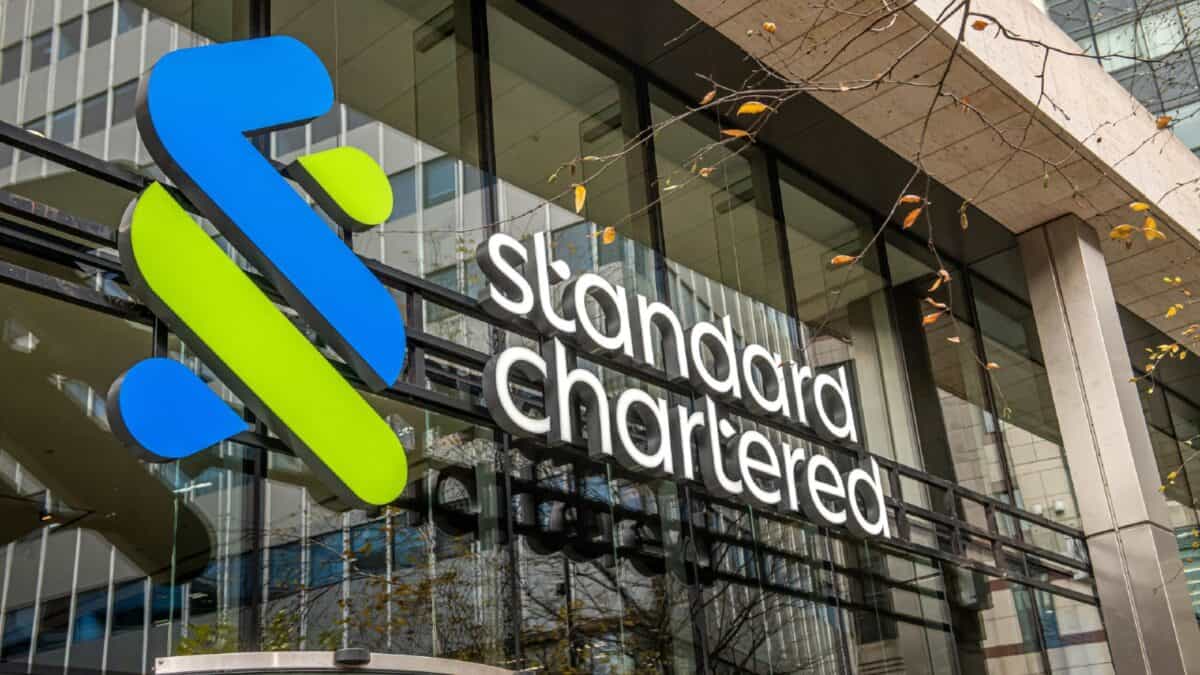This FTSE 100 stock caught my eye after I noticed the share price up almost 10% in a single day last week. So I decided to investigate whether this is the start of something bigger, or just a one-off gain.
Solid earnings
Standard Chartered (LSE:STAN) hit a new yearly high last week after posting results that beat expectations. The UK-based bank reported a 5.5% rise in first-quarter pre-tax profit following a boost in its trading division. Revenues rose 6.4% to $5.2bn, with per-share earnings now expected to rise 20% this year to $1.45.
Although the bank is headquartered in London, most of its business is now in Asia. It’s majority-owned by Singapore-based Temasek Holdings and has turned down several takeover bids from the UAE’s First Abu Dhabi Bank. In October last year, the shares fell 12% after it reported a nearly $1bn loss from investments in China.
Should you invest £1,000 in Tesco right now?
When investing expert Mark Rogers has a stock tip, it can pay to listen. After all, the flagship Motley Fool Share Advisor newsletter he has run for nearly a decade has provided thousands of paying members with top stock recommendations from the UK and US markets. And right now, Mark thinks there are 6 standout stocks that investors should consider buying. Want to see if Tesco made the list?
So could this recent boost be a precursor to a revival?
An alternative bank stock
While Standard Chartered may be a lesser-known bank in the UK these days, it’s still considered systemically important by the Financial Stability Board (FSB), an international body that provides advice and guidance regarding the global financial system. And those who’ve gazed on its towering corporate office in Singapore’s famous Marina Bay will have no doubt about its global significance. But does that make it a better option than the local high street banks that are household names? Maybe.
One attractive prospect is its indifference to the tides of the British economy, providing exposure to a different aspect of the UK financial sector. This could add a level of diversification to my portfolio that local bank stocks may not be able to provide. Key competitor HSBC is probably the most similar but may have fewer growth prospects. From what I’ve seen, most analysts expect its earnings to decline by 3% or more in the next three years. On the other hand, Standard Chartered is expected to grow earnings by 9.2%.
What’s the catch?
Standard Chartered lacks that key ingredient that makes some other bank stocks so attractive – a high dividend yield. At only 2.8%, it’s not very impressive next to HSBC’s 7% yield. So while the recent growth seems good, it does have some downsides and risks associated. For instance, I’m somewhat concerned with the bank’s credit impairments in China. It revealed $165m of writedowns in the first quarter, up from only $20m last year. That’s a concerning increase. On top of that, it’s been forced to put aside $100m in potential compensation for losses related to an equity investment scheme in South Korea.
But despite the above issues, the stock’s performance has been improving. The recent share price growth recovered almost all losses made last year, bringing the price close to a new yearly high. Based on future cash flow estimates, some analysts calculate it could be trading at 60% below fair value. And with it now up 31% since this year’s low, investors are starting to take note. It’s caught the attention of several major brokers, with both Jefferies and Berenberg putting in a Buy rating for the stock last week.
If the current rally continues and the price breaks above last year’s high of 758p, I would certainly consider buying the shares.








